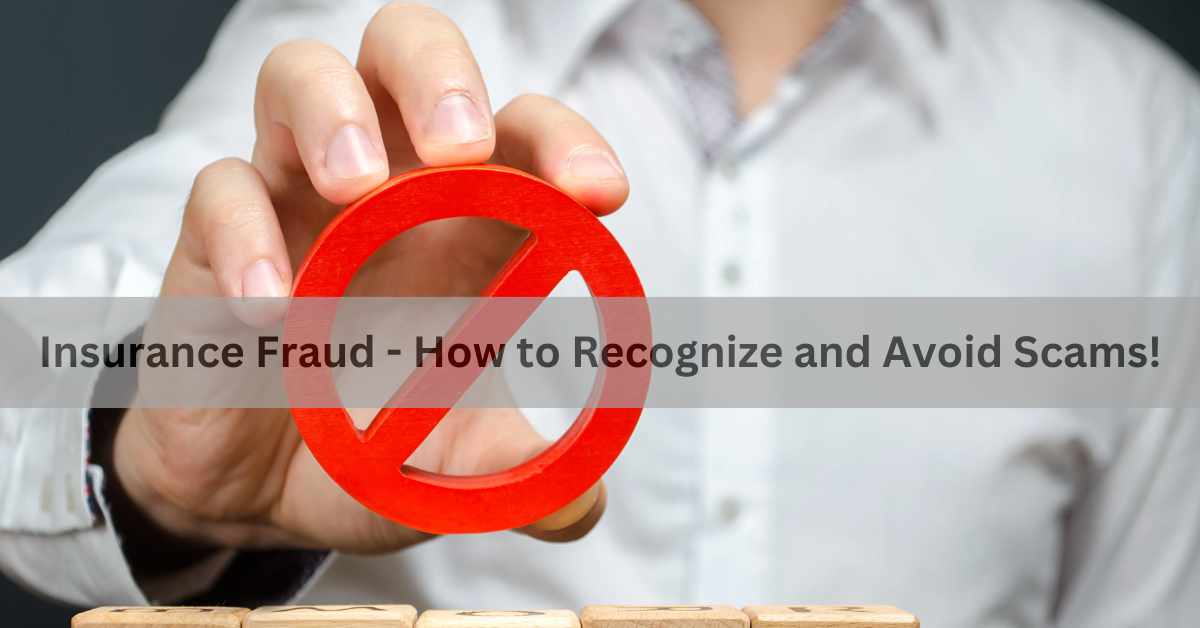Insurance fraud is a serious issue that affects millions of people worldwide. It occurs when someone deliberately deceives an insurance company to receive money or benefits they are not entitled to. This fraud can lead to higher premiums for honest policyholders and significant financial losses for insurers. Understanding how to recognize and avoid these scams is crucial for protecting yourself and your financial interests.
Contents
- 1 Types of Insurance Fraud
- 2 Recognizing Red Flags
- 3 Protecting Your Personal Information
- 4 Verifying Insurance Agents and Companies
- 5 Understanding Your Policy
- 6 Reporting Suspected Fraud
- 7 Staying Informed About Common Scams
- 8 Working with Reputable Insurance Providers
- 9 Educating Yourself on Fraud Prevention
- 10 Maintaining Vigilance
- 11 Recognizing Fake Insurance Policies
- 12 Avoiding Online Scams
- 13 Being Wary of High-Pressure Tactics
- 14 Monitoring Your Credit Report
- 15 Seeking Professional Advice
- 16 Conclusion
Types of Insurance Fraud
Insurance fraud comes in many forms, impacting various types of insurance, including health, auto, home, and life insurance. Common types include false claims, inflated claims, and even staged accidents. In health insurance, fraud might involve billing for services not rendered or exaggerating the severity of a condition. In auto insurance, it could involve staged collisions or false reports of vehicle theft. Recognizing these patterns is the first step in avoiding fraud.
Recognizing Red Flags
There are several red flags that may indicate insurance fraud. These include receiving unsolicited calls or emails from individuals claiming to represent an insurance company, pressure to provide personal information quickly, or offers that seem too good to be true. Additionally, if a supposed insurance agent avoids providing detailed information about the policy or is reluctant to meet in person, these could be signs of a scam. Always verify the legitimacy of any communication before proceeding.
Protecting Your Personal Information
Your personal information is valuable and should be protected at all times. Never share your social security number, bank details, or other sensitive information with unknown individuals or companies. Use secure communication channels and ensure that your insurance provider has proper security measures in place. Be cautious about the information you post online, as fraudsters can use it to create more convincing scams.
Verifying Insurance Agents and Companies
Before purchasing an insurance policy, verify the credentials of the agent and the legitimacy of the insurance company. Check with your state’s insurance department or regulatory body to confirm that the agent is licensed and in good standing. Research the company’s reputation and look for reviews or complaints from other customers. A legitimate company will have a verifiable history and a physical address.
Understanding Your Policy
Thoroughly understanding your insurance policy can help you recognize potential fraud. Know what your policy covers, the exclusions, and the process for filing claims. Fraudsters often exploit a lack of knowledge, so being well-informed can make you less vulnerable. If you have any doubts or questions about your policy, consult with a trusted insurance advisor or contact your insurer directly.
Reporting Suspected Fraud
If you suspect that you have encountered insurance fraud, report it immediately to your insurance company and the appropriate authorities. Many insurers have dedicated fraud hotlines or departments that handle such reports. Providing detailed information and evidence can help in the investigation and potentially prevent others from becoming victims.
Staying Informed About Common Scams
Staying informed about common insurance scams can help you avoid them. Regularly check for updates from your insurance provider or industry watchdogs about new types of fraud. Educate yourself about the tactics used by fraudsters and share this knowledge with friends and family to protect them as well. Awareness is a powerful tool in preventing fraud.
Working with Reputable Insurance Providers
Choosing a reputable insurance provider can significantly reduce the risk of encountering fraud. Look for companies with strong customer service records and positive reviews. A reputable provider will have transparent policies and a clear process for handling claims. They will also be more likely to assist you in the event of a fraudulent claim or suspicious activity.
Educating Yourself on Fraud Prevention
Investing time in educating yourself about fraud prevention can save you from potential losses. Many organizations and websites offer resources and tips on how to protect yourself from insurance fraud. Attend seminars, read articles, and stay updated on the latest fraud prevention techniques. Knowledge is your best defense against becoming a victim of fraud.
Maintaining Vigilance
Staying vigilant is essential in protecting yourself from insurance fraud. Regularly review your insurance statements and documents for any discrepancies or unauthorized changes. Keep an eye on your bank and credit card statements for unusual transactions. By maintaining a proactive approach, you can quickly identify and address any potential issues.
Recognizing Fake Insurance Policies
Fake insurance policies are a common scam where fraudsters create phony documents that appear legitimate. Always purchase insurance directly from a licensed agent or a recognized insurance company. Verify the authenticity of the policy through official channels and be wary of unusually low premiums that seem too good to be true. A genuine policy will have verifiable terms and conditions.
Avoiding Online Scams
Online scams are increasingly prevalent, with fraudsters using emails, websites, and social media to deceive individuals. Be cautious of unsolicited offers and always verify the source before clicking on links or downloading attachments. Use strong, unique passwords for your accounts and enable two-factor authentication where possible. Ensure that your computer and mobile devices are protected with up-to-date security software.
Being Wary of High-Pressure Tactics
Fraudsters often use high-pressure tactics to rush you into making decisions without giving you time to think. If you feel pressured to provide information or make a payment quickly, take a step back and assess the situation. Legitimate insurance companies will give you time to review your options and make an informed decision. Trust your instincts and do not be afraid to say no.
Monitoring Your Credit Report
Regularly monitoring your credit report can help you detect fraudulent activity early. Check for any unusual accounts or inquiries that you do not recognize. If you spot any suspicious activity, report it to the credit bureau and your insurance company immediately. Keeping an eye on your credit can prevent fraud from escalating and causing more significant problems.
Seeking Professional Advice
If you are unsure about any aspect of an insurance policy or suspect fraud, seek professional advice. Consult with a licensed insurance advisor or legal professional who can provide guidance and support. They can help you navigate the complexities of insurance policies and ensure that you are protected from fraudulent schemes.
Conclusion
Insurance fraud is a pervasive issue that can have severe financial consequences. By recognizing the signs of fraud, protecting your personal information, and staying informed about common scams, you can safeguard yourself and your finances. Always verify the legitimacy of insurance agents and companies, understand your policy, and report any suspected fraud immediately. Staying vigilant and seeking professional advice when needed will help you avoid becoming a victim of insurance fraud and ensure a smooth and secure insurance experience.


